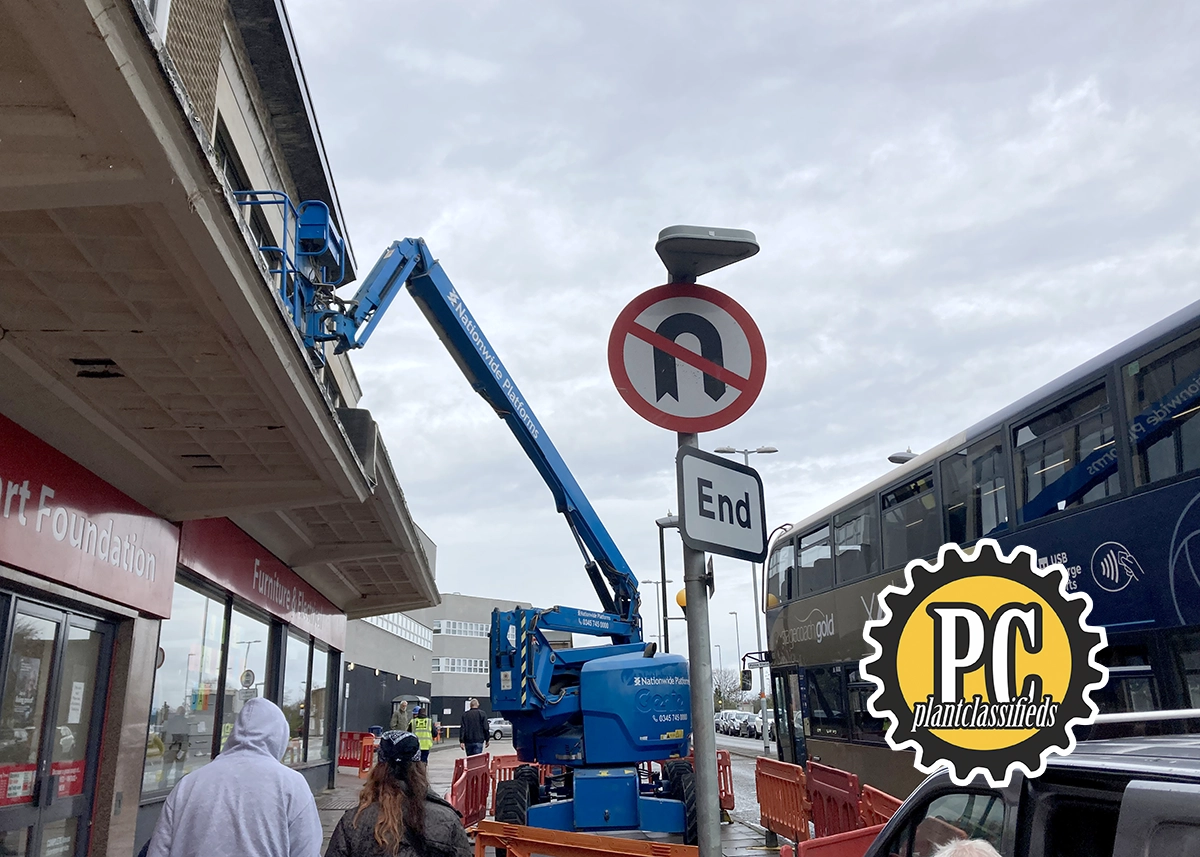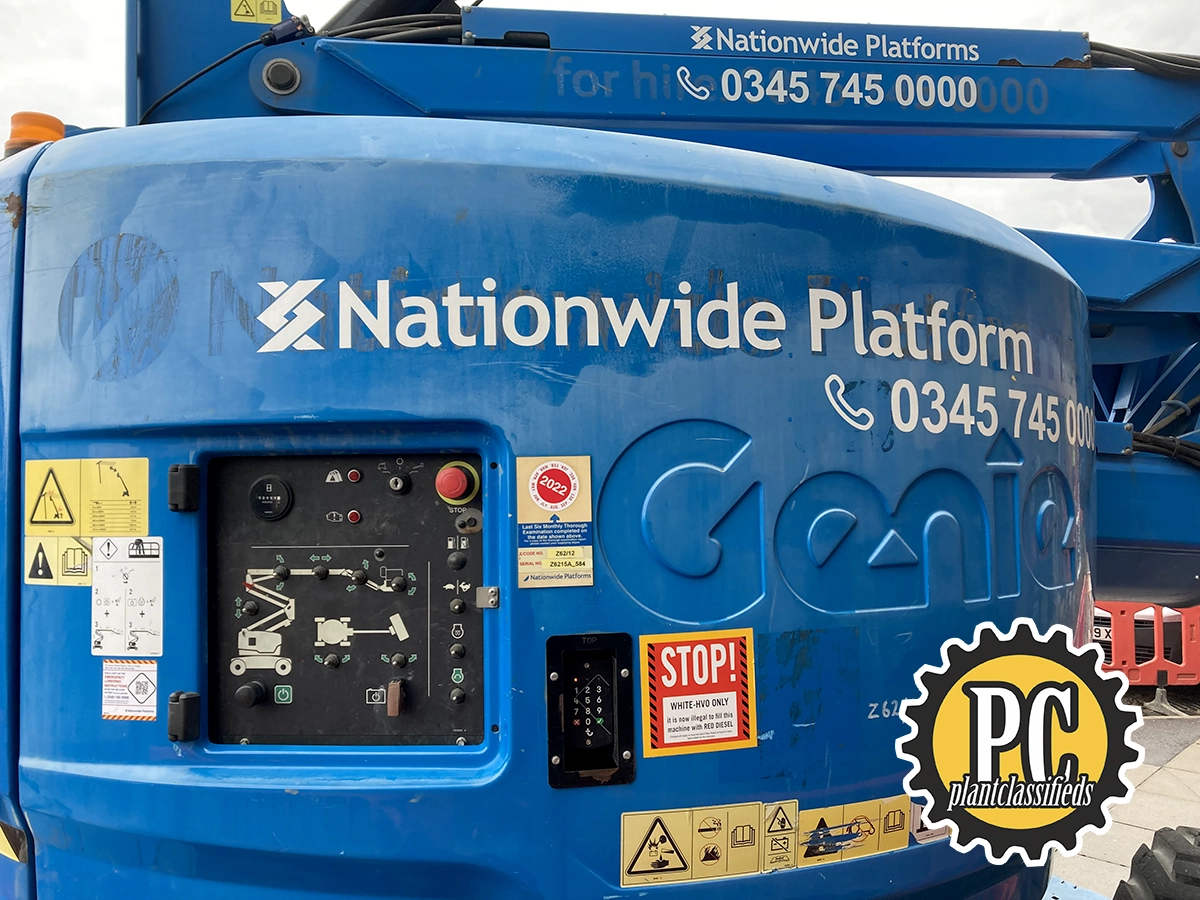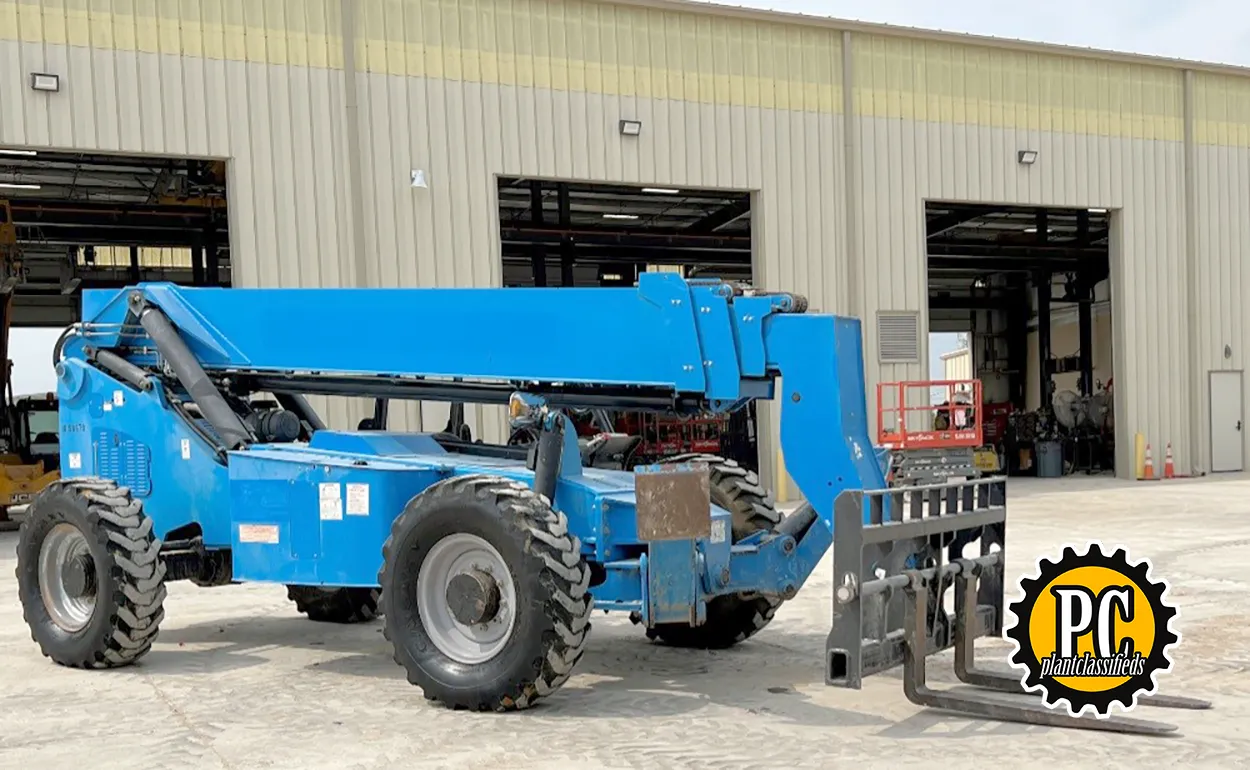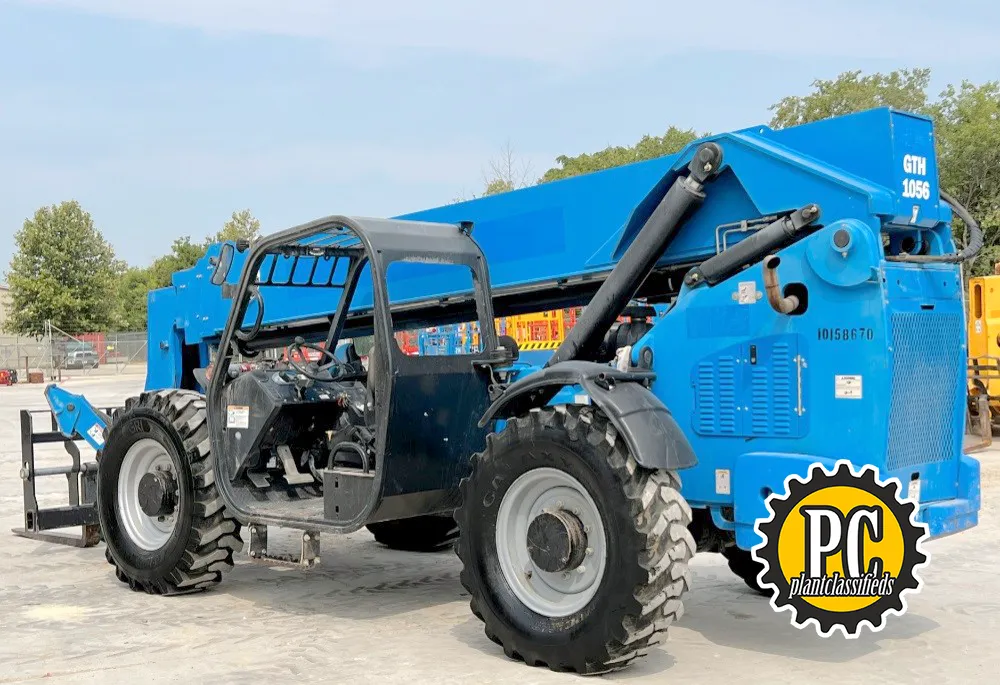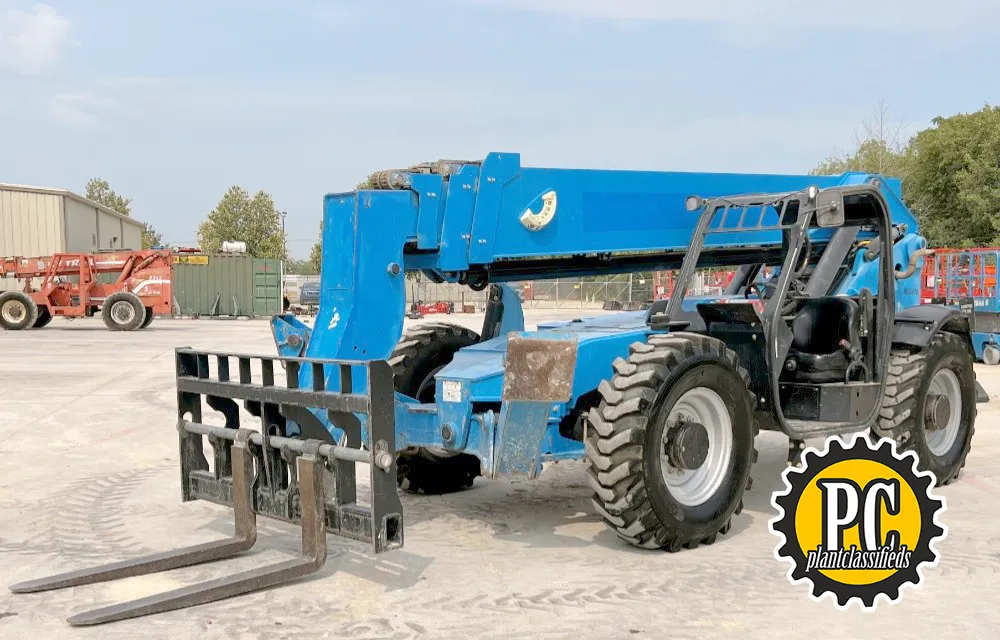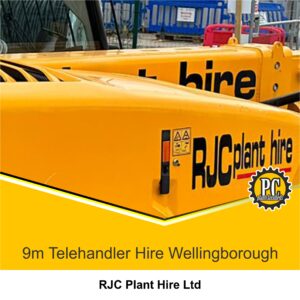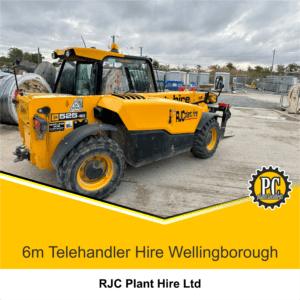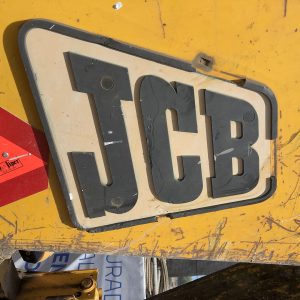Telehandler FAQs
We answer some of the most commonly asked telehandler FAQs
We Answer Your Telehandler FAQs
We address your telehandler FAQs, providing straightforward answers to common queries regarding their operation and safety.
Yes, you need a valid driving licence to operate a telehandler on the road in the United Kingdom. Please also make sure that you comply with all four points outlined below before driving a telehandler on the road.
The operator/driver needs to have a valid UK driving licence.
The telehandler needs to be registered and taxed with the DVLA. See current DVLA rates of vehicle tax here.
You are required to insure your telehandler for road use. You can either add the telehandler to your existing policy as an “extra“ or insure it on a separate policy.
The operator/driver needs to be competent and trained on how to use the telehandler and have read and understood the operator’s manual.
Plant Hire Tip:
You are not legally required to have a NPORS or CPCS Telescopic Handler A17 Wheeled ticket to operate a telehandler on private land however it is required on a construction site.
Checklist:
- You require a valid UK Driving Licence.
- The telehandler must be registered and Taxed with the DVLA.
Please see the .gov website for more information below:
A 17–metre telehandler is approximately 5.6 metres tall. The overall height of a JCB 540-170 telehandler is 2.69m which does not take flashing beacons into account, which are usually located on the top of the cab.
| JCB 540-170 | Dimensions |
| Overall Height | 2.69m |
| Overall Width | 2.44m |
| Length to Carnage | 6.36m |
| Ground Clearance | 0.4m |
| Turn Radius | 4.10m |
| Wheelbase | 2.75m |
| Weight | 12060kg |
| Maximum Payload | 4000kg |
| Maximum Lift Height | 16.7m |
| Lift capacity to full height | 2500kg |
| Lift capacity at full reach | 800kg |
| Placing Height | 11.7m |
| Reach at maximum lift height | 1.97m |
| Fuel Type | Diesel |
| Fuel Tank Capacity | 146L |
| Noise Level | 75LP(A) |
| Tyres | 5.5/80-24 |
*Dimensions are subject to change.
Visit JCB’s website.
The cost of hiring a telehandler depends on the size of the telehandler, the length of the contract, and delivery and insurance costs. The weekly rate of a telehandler starts at roughly £250.00 per week, excluding, fuel, insurance delivery, and operator costs.
You will need to consider the job or range of jobs the telehandler will be used for, the lifting height needed, the weight of loads to be moved, and the ground surface of the work area.
If you are unsure, your plant hire company can recommend the most appropriate equipment for the application and conditions.
Yes, you will need to purchase a plant hire insurance policy to cover the equipment you are hiring.
The hirer is responsible for the hired in telehandler from the moment it is delivered to you or collected from the hirer’s premises.
Additionally, you must store hired telehandler equipment safely and securely for the duration of the hire contract.
In the event of theft or damage to your hired in plant, you should contact your insurer and the plant company immediately. If the plant is stolen you should also report the incident to the police.
No, usually not, as you commonly will not need to hire additional telehandler attachments for most basic lifting and carrying duties.
However, crane jib attachments can be useful for particularly heavy loads, distributing their weight more evenly and buckets are useful for moving loose loads of aggregates.
Plan ahead of time and understand your site requirements, as the correct telehandler attachment can save you both time and money.
There are many reasons to hire a telehandler rather than a traditional forklift or skid steer loader.
Telehandlers are versatile and can easily perform the roles of both machines and more. They can easily place and retrieve loads at heights greater than either.
Telehandlers are more maneuverable and can work on a multitude of surfaces and travel by road. Their three steering modes allow normal two-wheel drive, turning in tight circles and driving sideways into confined spaces.
Combined with a wide variety of attachments, telehandlers are suited to more roles on-site, than almost any other piece of plant machinery.
Try Our Free Telehandler Inspection Checklist
JCB's Range of Telehandlers and Specifications
| JCB Telehandler Specifications | |||||
| Model | Lift Height | Lift Capacity | Lift Capacity at Full Height | Lift Capacity at Full Reach | Max Forward Reach |
| 525-60E | 6.0 m | 2,500 kg | 2000 kg | 720 kg | 3.5 m |
| 514-40 |
4.0 m |
1,400 kg | 1300 kg | 525 kg | 2.51 m |
| 525-60 Hi Viz | 6.0 m | 2,500 kg | 2000 kg | 720 kg | 3.06 m |
| 531-70 | 7.0 m | 3,100 kg | 2400 kg | 1250 kg | 3.7 m |
| 541-70 | 7.0 m | 4,100 kg | 2500 kg | 1500 kg | 3.7 m |
| 535-95 | 9.5 m | 3,500 kg | 1600 kg | 500 kg | 6.52 m |
| 533-105 | 10.22 m | 3,300 kg | 1000 kg | 375 kg | 6.94 m |
| 535-125 HI-VIZ | 12.27 m | 3,500 kg | 3200 kg | 1200 kg | 8.06 m |
| 540-140 HI-VIZ | 13.78 m | 4,000 kg | 3000 kg | 1250 kg | 9.7 m |
| 540-170 | 16.7 m | 4,000 kg | 2500 kg | 800 kg | 9.7 m |
| 540-180 Hi-Viz | 17.51 m | 4,000 kg | 2500 kg | 550 kg | 13.34 m |
| 540-200 | 20.0 m | 4,000 kg | 1500 kg | 200 kg | 15.9 m |
| Model | Operating Weight | Stabilisers | Travel Speed | Power Type | Max. Engine Power |
| 525-60E | 5,145 kg | No | 15 kph | Electric | 24kWh |
| 514-40 | 2,915 kg | No | 15 kph | Diesel | 19 kW |
| 525-60 Hi Viz | 5,490 kg | No | 25 kph | Diesel | 55 kW |
| 531-70 | 7,060 kg | No | 33 kph | Diesel | 55 kW |
| 541-70 | 7,850 kg | No | 33 kph | Diesel | 81 kW |
| 535-95 | 8,215 kg | No | 33 kph | Diesel | 55 kW |
| 533-105 | 8,850 kg | Yes | 33 kph | Diesel | 55 kW |
| 535-125 HI-VIZ | 10,066 kg | Yes | 29 kph | Diesel | 55 kW |
| 540-140 HI-VIZ | 10,880 kg | Yes | 29 kph | Diesel | 55 kW |
| 540-170 | 12,060 kg | Yes | 29 kph | Diesel | 55 kW |
| 540-180 Hi-Viz | 11,380 kg | Yes | 29 kph | Diesel | 55 kW |
| 540-200 | 12,985 kg | Yes | 29 kph | Diesel | 55 kW |
Find Telehandlers for Hire Near You
- {{ listingType.name }}
- prev
- next
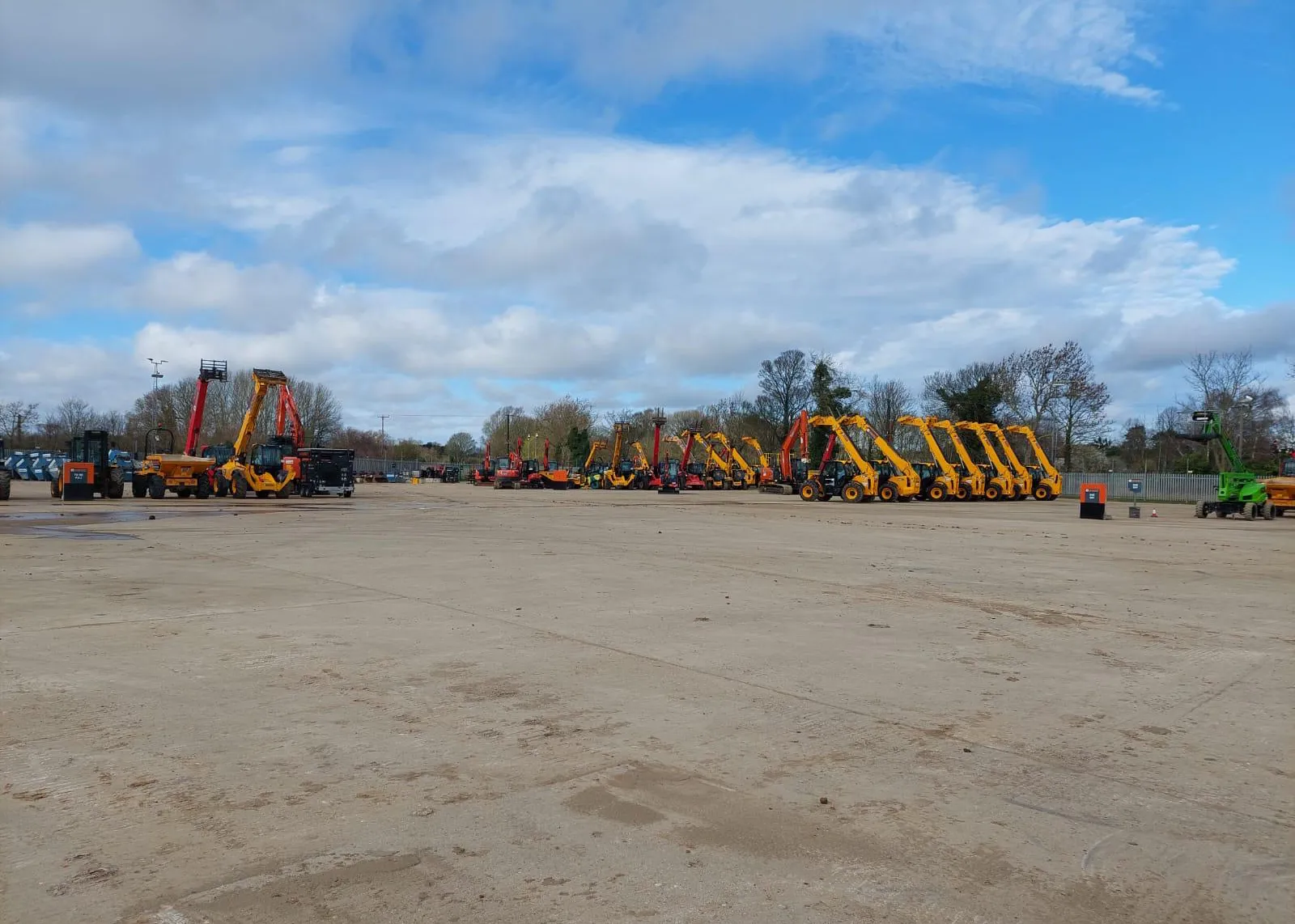
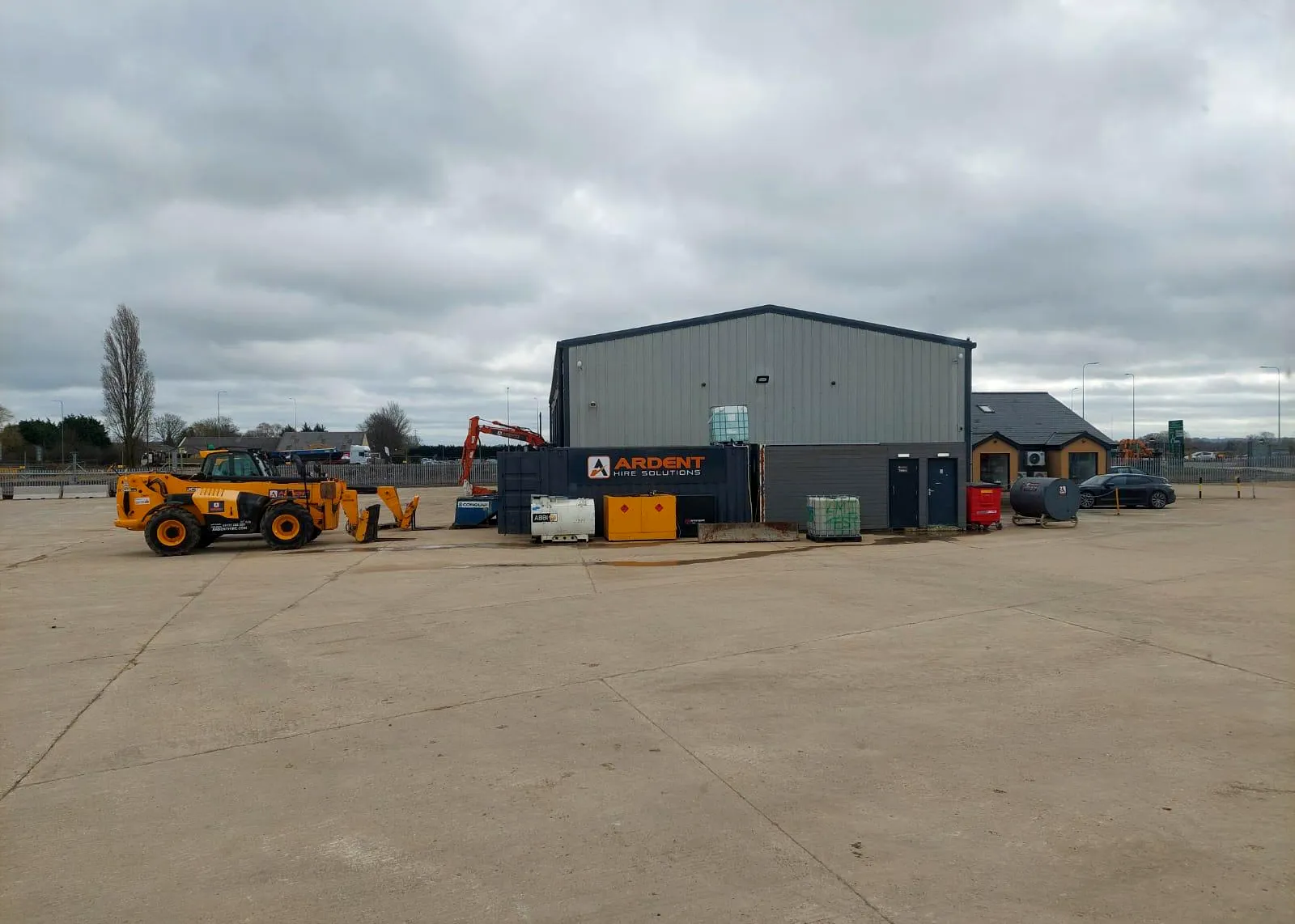

Ardent Hire Chawston Depot: New Super Hub 
Ardent Hire Chawston Depot, Bedfordshire Ardent Hire Solutions is excited to unveil its latest…
- 18/03/2024
- Great North Road
- Plant Hire
- +13 Excavators Mini (0.8–5 tonnes), Excavators Midi (6-12 tonnes), Telehandlers, Telehandlers Rotating, Forklifts, Rough Terrain Forklifts, Dumpers (site), Dumpers (Cabbed), Compaction Rollers, Generators, Attachment Hire, Mobile Elevated Work Platforms (MEWPs), Diesel Bowsers
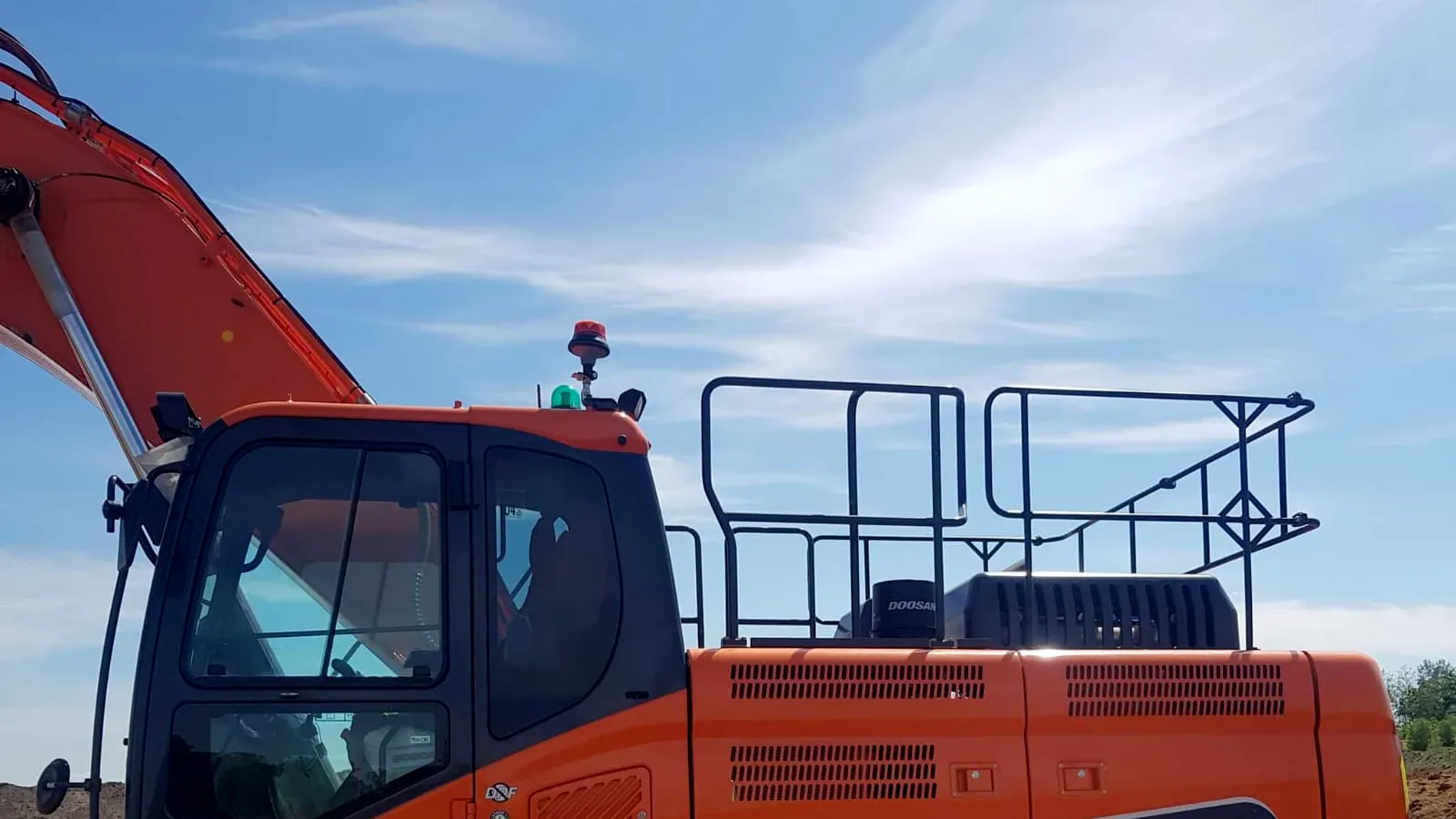
DA Johnstone Plant Hire Ltd: Safety First 
DA Johnstone Plant Hire Ltd - Morpeth, United Kingdom As one of the nation's leading plant and machinery…
- 28/11/2023
- Longhirst
- Excavators Mini (0.8–5 tonnes)
- +7 Excavators Midi (6-12 tonnes), Excavators Crawler (13-44 tonnes), Dumpers (site), Telehandlers, Compaction Rollers, Mobile Crushers, Screens

